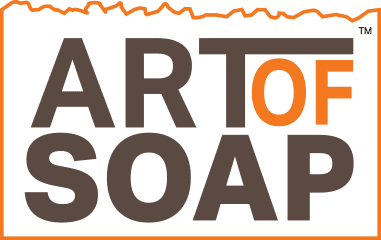According to research, one in 10 people is most likely to experience eczema at some point in their life. And while children are often the ones that are more prone to suffer from it, there is still a 10 percent chance that adults may also have to deal with it.
Thus, understanding what eczema is, its causes, possible treatments, and how to avoid it are some of the things that you will learn about in this article.
So, let’s begin.
What is eczema?
Eczema, or Atopic Dermatitis (AD), is a condition where the skin becomes itchy and may frequently become red. In simple terms, eczema is a condition of skin irritation when your skin meets an irritant.
This means that your skin is allergic or hostile to certain elements and therefore reacts to them in an unusual manner such as itching and/or redness.
Is there a cure for Eczema?
As of now, there is no absolute cure for eczema. However, there are treatments and preventive measures.
Still, the use of preventive methods and treatments are not uniform in every situation and depends on the severity of each person’s condition or skin sensitivity.
Eczema causes and triggers
Before discussing the causes and triggers of eczema, it is important to briefly know its symptoms. These are –
- Skin redness (may happen from time to time),
- Itching or the urge to scratch your skin (this can be between moderate or quite intense), and
- Dry, scaly skin.
Besides the commonly known eczema type, Atopic Dermatitis (AD), there are other types of eczema as well, each of which is caused by different triggering factors or elements that your skin encounters.
However, below is a general list of items that can cause and trigger allergic reactions on your skin. These are –
- Nickel
- Fragrances
- Cobalt
- Formaldehyde
- Antibacterial products
- Fabrics (not all but certain types)
- Stress
- Climatic conditions (this alters your skin’s humidity level, thus causing it to dry more often than usual)
- Infection (due to any injury or disease)
- Hormonal changes and imbalance
- Allergens
- Shampoos (that contain certain allergic chemicals)
- Zinc
- Certain types of food items (eggs, soy, gluten, dairy, citrus fruits, spices, nuts, tomatoes)
How are soap bars used to treat eczema?
When dealing with eczema, it is important to carefully select the soap bars you use on your skin for washing hands and taking a full-body bath or shower.
This is because, during eczema, your skin is already trying hard to balance and return to its normal condition after encountering with an unexpected external stimuli. Therefore, minor negligence on your part could deteriorate its condition, thus causing further dryness or inflammation of your skin.
When buying a soap bar for use to treat eczema, make sure that it has the following properties –
- Ability to moisturize and soothe your skin as well as cleanse it properly.
- Recommended by or developed under the supervision of a dermatologist which guarantees to restore your skin’s healthy and natural state.
- Free from known allergens, fragrances, and parabens.
- Usable for routine hand washing and taking a bath or shower.
Ingredients to avoid in soap
As already mentioned, there is not any known cure to treat or get rid of eczema. However, there are preventive measures that can help in significantly reducing its severity and getting rid of it over some time.
One such preventive measure is to buy the right kind of soap that does not interact with your skin harshly. Therefore, when buying a soap whether you are having an eczema condition or not, look out for the following ingredients and avoid them as much as possible.
1 # Fragrances
Fragrances are a key selling point in most beauty soaps however, they are known to be an allergen. People with sensitive skin types react quickly and may develop any allergic conditions.
2 # Urea
Normally, soaps that contain urea are an excellent choice for certain skin conditions but not during eczema.
3 # Essential oils
Essential oils are included in soaps to bring natural fragrance qualities in it and add healing properties. But contrary to this popular belief that they benefit the body and mind, they can also cause skin irritation and allergy.
4 # Lanolin
Lanolin, also known as wool yolk, wool grease, or wool wax, comes from wool-bearing animals, especially sheep. While lanolin has skin softening and soothing properties, it can also cause allergies on certain peoples’ skin.
5 # Propylene glycol
Propylene glycol is found in many medications used for treating eczema. However, if someone is allergic to it, it is better to completely avoid products that contain it.
Shop Natural Soap Bars with Art of Soaps today!

